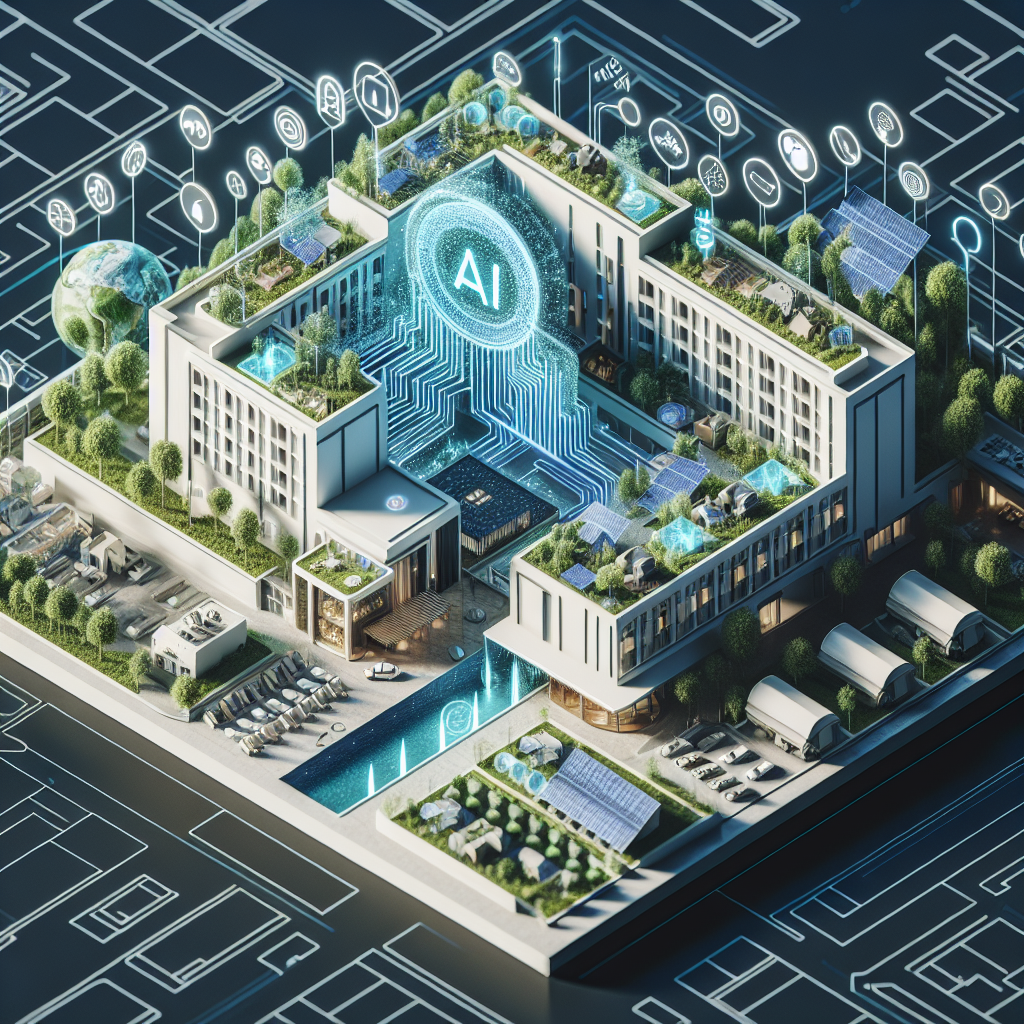The Impact of AI on Hotel Sustainability Practices
In recent years, the hospitality industry has been increasingly focused on implementing sustainable practices to reduce their environmental footprint. One of the key technologies that is driving this change is artificial intelligence (AI). AI has the potential to revolutionize the way hotels operate, from energy efficiency to waste management, and even guest experiences. In this article, we will explore the impact of AI on hotel sustainability practices and how it is shaping the industry for a more sustainable future.
AI and Energy Efficiency
One of the most significant ways that AI is impacting hotel sustainability practices is through energy efficiency. AI-powered systems can analyze data in real-time to optimize energy usage, reduce waste, and lower costs. For example, smart thermostats can adjust room temperatures based on occupancy levels and weather conditions, while smart lighting systems can adjust brightness levels based on natural light and occupancy.
AI can also help hotels identify energy-saving opportunities through predictive analytics. By analyzing historical data and patterns, AI can predict when energy usage will be high and suggest ways to reduce consumption. This can lead to significant cost savings and reduce the hotel’s carbon footprint.
AI and Waste Management
Another area where AI is making a big impact on hotel sustainability practices is waste management. AI-powered systems can help hotels track and monitor their waste production, identify areas of waste generation, and suggest ways to reduce waste. For example, AI can analyze food waste in restaurants and suggest menu changes to reduce waste, or optimize housekeeping schedules to reduce water and chemical usage.
AI can also help hotels implement recycling programs more effectively. By analyzing the types of waste produced and identifying recyclable materials, AI can suggest ways to increase recycling rates and reduce landfill waste. This can help hotels meet their sustainability goals and reduce their impact on the environment.
AI and Guest Experiences
AI is also transforming the guest experience in hotels. From personalized recommendations to smart room controls, AI-powered systems can enhance the overall guest experience while also promoting sustainability. For example, AI-powered chatbots can provide guests with personalized recommendations for dining, activities, and local attractions based on their preferences and past behavior. This can help guests make more sustainable choices during their stay, such as dining at sustainable restaurants or participating in eco-friendly activities.
AI can also improve guest comfort and reduce energy usage through smart room controls. By analyzing guest behavior and preferences, AI can adjust room temperature, lighting, and other amenities to optimize comfort levels while also reducing energy consumption. This not only benefits the environment but also enhances the overall guest experience.
FAQs
Q: How can AI help hotels reduce their carbon footprint?
A: AI can help hotels reduce their carbon footprint by optimizing energy usage, identifying energy-saving opportunities, and improving waste management practices. By analyzing data in real-time and providing actionable insights, AI can help hotels make more sustainable choices and reduce their impact on the environment.
Q: What are some examples of AI-powered systems that hotels can implement for sustainability?
A: Some examples of AI-powered systems that hotels can implement for sustainability include smart thermostats, smart lighting systems, predictive analytics tools, waste tracking systems, and personalized guest experience platforms. These systems can help hotels optimize energy usage, reduce waste, and enhance the overall guest experience while promoting sustainability.
Q: How can hotels measure the impact of AI on their sustainability practices?
A: Hotels can measure the impact of AI on their sustainability practices by tracking key performance indicators such as energy consumption, waste production, recycling rates, guest satisfaction, and cost savings. By analyzing these metrics before and after implementing AI-powered systems, hotels can quantify the impact of AI on their sustainability efforts and make data-driven decisions to further improve their practices.
Q: What are some challenges hotels may face when implementing AI for sustainability?
A: Some challenges hotels may face when implementing AI for sustainability include initial costs, data privacy concerns, employee training, and integration with existing systems. It is important for hotels to carefully plan and strategize their AI implementation to overcome these challenges and maximize the benefits of AI for sustainability.
In conclusion, AI is playing a crucial role in shaping the future of hotel sustainability practices. By leveraging AI-powered systems, hotels can optimize energy usage, reduce waste, enhance guest experiences, and promote sustainable choices. As the hospitality industry continues to prioritize sustainability, AI will be a key driver of change for a more sustainable future.

